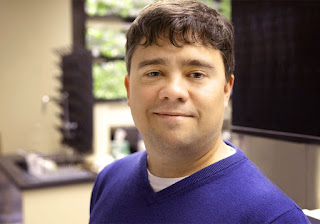School of Medicine faculty member focused on brain receptors affecting habitual behavior
By Chris Horn, chorn@sc.edu
New drug therapies being tested for treatment of schizophrenia hold potential for treating autism, says a School of Medicine Columbia faculty member who studies the brain receptors targeted by the experimental drugs.
Daniel Foster, who joined the Department of Pharmacology, Physiology and Neuroscience this past summer, is using a National Institutes of Health grant to study the relationship between repetitive behaviors and a particular brain receptor linked to such behaviors. Foster’s research suggests that muscarinic acetylcholine receptors could be a prime drug target to treat the habitual behaviors often seen in individuals on the autism spectrum.
"A previous clinical trial with Alzheimer’s disease patients looked at the cognitive benefits of targeting muscarinic receptors, and they surprisingly found that the 33 percent of Alzheimer’s patients who exhibited symptoms of hallucinations and outbursts experienced symptom relief while taking the drug,” Foster says. Gastrointestinal side effects eventually sidelined that experimental drug, but research on more selective muscarinic-targeted drug therapy continues.
“When you’re trying to think about moving a compound into clinical trials, it helps to know why a certain compound works.”
-- Dan Foster


No comments:
Post a Comment